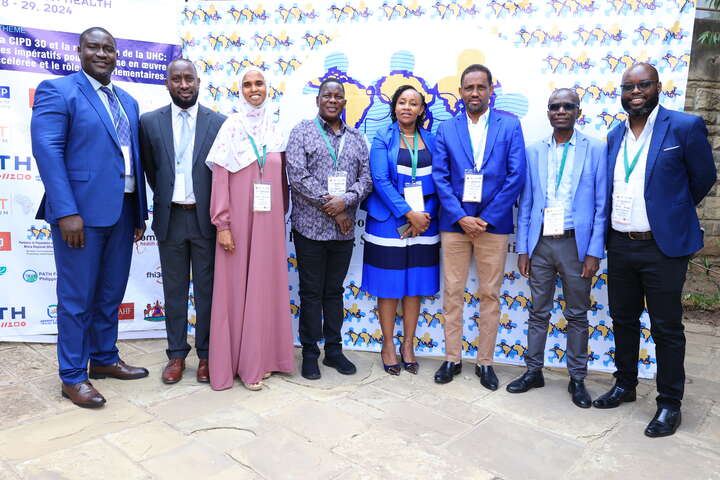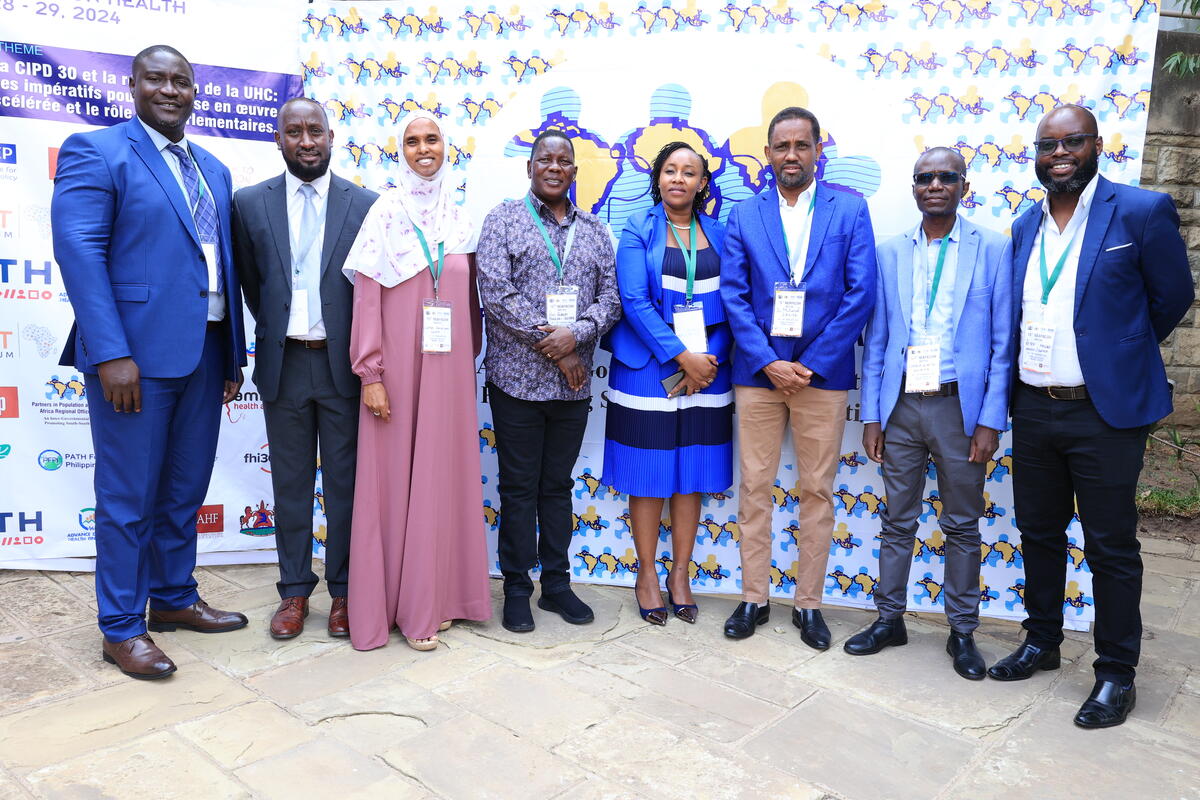
Author: Leyla Abdullahi, PhD
The substantial gender disparities in the epidemiological burden of tuberculosis (TB), with higher incidence among men (5.8 million) compared to women (3.5 million) and children (1.3 million) , highlight the urgent need for gender-responsive TB policies and an effective implementation framework. These disparities are some of the major challenges for achieving the global goal to end TB by 2030, as evident by ongoing research within the Leaving no-one behInd: transforming Gendered pathways to Health for TB (LIGHT) consortium. Political buy-in and support for action by parliamentarians are imperative to address this gap in TB policy and programming.
The LIGHT research programme funded by UK aid, is a six-year cross-disciplinary consortium of seven partners from Nigeria, Kenya, Malawi, Uganda, and the United Kingdom, that aims to generate evidence and advocate for gender-responsive policies and interventions needed to improve access to quality TB care. At the 15th meeting of the Network of African Parliamentary Committees of Health (NEAPACOH), held on 28th February 2024 in Maseru, Lesotho, the LIGHT consortium highlighted the current status of TB in African countries and the opportunity to address the determinants of gender disparities in TB burden and care.

Situation analysis on TB and gender
The African Institute for Development Policy (AFIDEP), a LIGHT partner organisation, facilitated a pre-NEAPACOH half-day forum, titled ‘Adopting Gender-Responsive TB Programming to Ending TB in Africa and Beyond’. At the event, Prof. Jeremiah Chakaya, a founding member of the Respiratory Society of Kenya (ReSoK) and a partner within the LIGHT consortium, outlined the challenges men face in accessing to TB care, emphasising that such challenges span across the full spectrum of the care cascade from diagnosis, and linkage to care, to adherence to treatment and post-treatment support.
Men have been left behind in TB diagnosis and care due to multiple individual and structural drivers including poor healthcare-seeking behaviour, which is compounded by economic and socio-behavioural risks that may complicate the recognition of signs and symptoms. There is thus a need to increase resources to integrate biomedical and biosocial approaches in addressing gender disparities throughout the TB care cascade.
Learning on how to enhance TB programming with a gender lens
The event offered a unique opportunity for engaging with key high-level policymakers from various African countries, and hearing from them about their insights into the development and implementation of gender-responsive TB policies. Below are some of the key highlights:
Ms. Wendy Nkirote, Public Private Collaborations, Human Rights and Gender Coordinator at Kenya’s National Tuberculosis, Leprosy and Lung Disease Program (NTLD-P), highlighted the importance of an up-to-date gender-responsive TB strategy and implementation framework to guide action. Kenya launched a revised National Strategic Plan (NSP) for Tuberculosis, Leprosy, and Lung Health 2023/24–2027/28 in January 2024, with a clear roadmap towards achieving equitable, gender-transformative access to services, especially among marginalised and vulnerable groups.
Hon. Ssebikaali Joel of the Ugandan TB Caucus commended the efforts of African countries in advancing TB prevention and care. He particularly noted the work of select African countries in conducting Community, Rights, and Gender (CRG) assessments to document the status of integrating gender in TB programming. The CRG assessment is a qualitative research tool that prioritises the experiences and participation of communities affected by TB, including vulnerable populations.
Hon. Joel emphasised the need to sensitise communities and increase their awareness on gender-responsive TB programming to enhance the uptake of community-led initiatives. Echoing this point, Hon Monty Chinkuli from Zambia, explained the role communities play in determining resource allocation, while underscoring that empowering them with knowledge on gender and TB would advance and facilitate the adoption of this approach.
It was clear at the event that community health approach is gaining prominence, as noted by Hon. Mokhothu Makhalanyane, Chairperson of NEAPACOH, particularly in Lesotho and other countries in Eastern and Southern Africa, with full participation and ownership by diverse community groups. Parliamentarians in the room thus emphasised the need for governments to co-create people-centred and demand-driven interventions in collaboration with communities, civil society organisations and research institutions. They also highlighted the importance of increasing political commitment, allocating more domestic funds to health care, and countering the overdependence on foreign donor resources.
Commitments to End TB
The two-day NEAPACOH meeting ended with parliamentarians binding themselves to commitments that enhance oversight and accountability in the health sector with a multisectoral approach. The Maseru commitment had specific commitments that will contribute to ending TB by 2030.
Call to Actions 3 and 11 seek to increase and mobilise domestic funds towards primary healthcare systems, including for specific diseases such as TB, while fostering equitable and robust health systems rooted in people-centred approaches and unified health services. While Call to Action 14 focuses on addressing the social and commercial determinants of health, such as gender equality, quality education, zero hunger and poverty, among others. These chart a clear path forward, and the LIGHT consortium will continue to work with countries to put gender-responsive TB interventions at the heart of the health agenda to ultimately call time on the epidemic by 2030. For example, LIGHT agreed to support countries with direct TB commitment, like Malawi, to accelerate the implementation of their commitment towards TB care.
